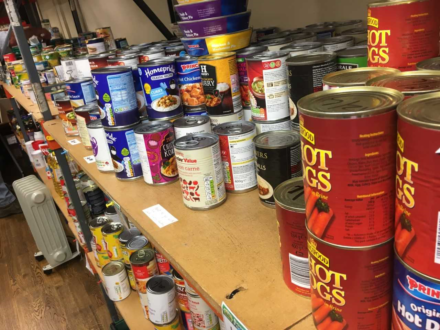
Holiday hunger is a national disgrace. It shames our country that kids cannot get a decent meal. This is the grim reality of Tory Britain: pernicious benefit cuts, universal credit, zero hours contracts and precarious employment, foodbanks with growing queues and dwindling stocks through the longer summer holidays.
It is estimated that 3m children have been at risk of going hungry through this summer break. The incredible efforts of organisations like Feeding Britain, the Trussel Trust, Fareshare and the hundreds of small, grassroots volunteer groups running holiday hunger projects and foodbanks should be applauded. But as I wrote last year, this is a problem that should not exist.
No parent should have to lay awake worrying how they will get food on the table. The stigma of walking through the doors of a foodbank – despite the unstinting empathy and warm support offered by their staff and volunteers – is something that no family in modern Britain should have to endure.
I recently visited the Bassetlaw Foodbank in Worksop where demand this July was up two thirds on the same month last year. The staff and volunteers I met do truly remarkable work. They report background stories of their daily and increasing referrals typical of any foodbank across the country: people pushed to the brink by benefit changes or struggling because of low pay and zero hours contracts. This reflects the stories I have heard at foodbanks and projects helping those in food poverty across the East Midlands over this summer. In Leicester a holiday hunger project I visited planned to serve 80 meals a day. On the day I visited 160 were needed, somehow and miraculously prepared on a domestic four-ring cooker in a shoebox kitchen.
Last week the Brexit Secretary began publishing technical advice notes for a No Deal Brexit. I would ask Dominic Raab where is his no deal technical note for foodbanks? Because if the Government’s negotiations fail it will be devastating for those already in the greatest need. No deal or a bad deal will mean higher prices for everything from bread and cereals to fruit and vegetables.
Those already needing the help of foodbanks because of austerity Britain and those close to the brink don’t have the luxury of a bit of headroom in their household budgets to allow for higher food costs. Food Standards Agency research shows that one in five households are experiencing or are close to food insecurity: even the most marginal increase in checkout prices would push more families below the breadline.
Trading on WTO schedules could push the prices of food staples like cheese up by 20%. Higher shopping bills will drive more people to the doors of Britain’s foodbanks. And at the same time those foodbanks will struggle to keep their shelves stocked as people will donate less, the higher prices making it less viable for the generous shoppers who buy a few extra items each week for the foodbank supermarket collection points. This vicious circle would be the reality of a bad deal or no deal Brexit.
For the sake of those in food poverty and close to the brink, the folly of no deal should be completely rejected. Ministers must not be allowed to forget that Brexit is a tale of two tables. The high drama of the Brexit negotiating table will have very real consequences for families struggling to put enough food on their table: higher food prices, longer queues at foodbanks and more holiday hunger would be a shameful outcome of any Brexit deal. A deal that risks those things is not one that should be supported.
Rory Palmer is Labour MEP for the East Midlands.




More from LabourList
‘The High Court judgment brings more uncertainty for the trans community’
‘There are good and bad businesses. Labour needs to be able to explain the difference’
‘This ruling should now remove any remaining barrier to approval of EHRC code’